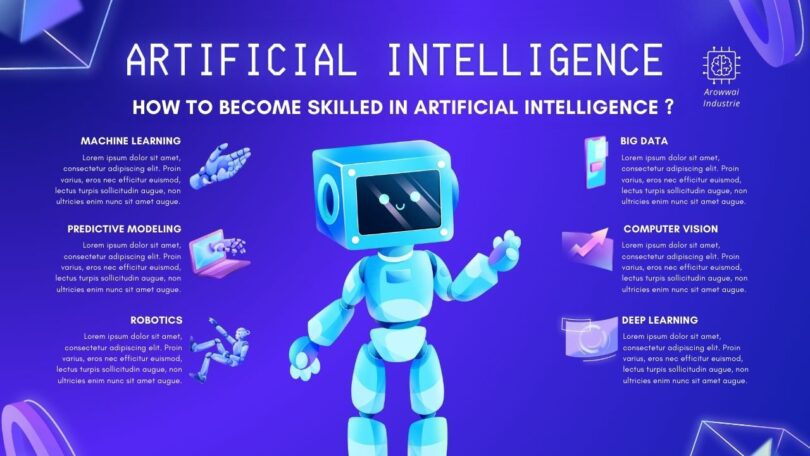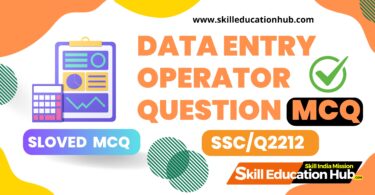Unraveling the Skills Tapestry of Artificial Intelligence : A Guide to Developing AI
Proficiency Artificial Intelligence (AI) is at the forefront of technological advancements, revolutionizing industries and reshaping the future. As the demand for AI expertise continues to soar, individuals are increasingly seeking ways to acquire and enhance their AI skills.
In this article, we delve into the intricacies of AI skills, explore the path to becoming proficient in AI, and highlight key aspects of AI testing skills.

What Skill is AI?
Artificial Intelligence encompasses a diverse set of skills that collectively contribute to the development, deployment, and maintenance of intelligent systems. At its core, AI involves the ability to mimic human-like cognitive functions, such as learning, reasoning, problem-solving, and language understanding. Key skills in AI include:
- Programming Skills: Proficiency in programming languages such as Python, R, and Java is fundamental for AI development. Python, in particular, has become the de facto language for AI due to its extensive libraries and community support.
- Machine Learning and Deep Learning: Understanding machine learning algorithms and deep learning architectures is crucial for AI practitioners. This includes supervised and unsupervised learning, reinforcement learning, and neural network design.
- Data Handling and Analysis: AI heavily relies on data. Skills in data preprocessing, cleaning, and analysis are essential. Knowledge of tools like Pandas and NumPy for data manipulation is valuable.
- Natural Language Processing (NLP): NLP skills involve the ability to work with and understand human language. This is critical for applications like chatbots, language translation, and sentiment analysis.
- Problem-Solving and Critical Thinking: AI professionals need strong problem-solving skills to approach complex challenges and develop effective solutions. Critical thinking is vital for designing innovative AI applications.

How Do I Become Skilled in AI?
Becoming skilled in AI requires a strategic and multifaceted approach. Here’s a step-by-step guide:
- Educational Foundation: Start with a solid educational foundation in computer science, mathematics, or a related field. Online courses and degree programs are widely available, covering AI fundamentals.
- Hands-On Experience: Gain practical experience through projects, internships, or personal initiatives. Work on real-world problems to apply theoretical knowledge.
- Continuous Learning: AI is a rapidly evolving field. Stay updated with the latest research papers, attend conferences, and participate in online communities to keep learning.
- Build a Portfolio: Showcase your AI projects in a portfolio. This not only demonstrates your skills but also provides tangible evidence of your capabilities to potential employers.
- Networking: Connect with professionals in the AI community. Networking can open doors to collaborations, mentorship, and job opportunities.

How Can I Improve My AI Skills?
Continuous improvement is key to staying relevant in the dynamic field of AI. Consider the following strategies:
- Specialize in a Subdomain: AI is broad; specializing in areas like computer vision, natural language processing, or reinforcement learning can deepen your expertise.
- Contribute to Open Source Projects: Joining open source projects allows you to collaborate with experienced developers, contribute to real-world projects, and gain valuable insights.
- Participate in Competitions: Platforms like Kaggle offer AI competitions where you can apply your skills to solve challenging problems and benchmark your performance against others.
- Advanced Courses and Certifications: Pursue advanced courses or certifications to gain in-depth knowledge in specific AI domains. Platforms like Coursera, edX, and Udacity offer specialized AI programs.
What Skills Do You Need for AI Testing?
AI testing is a specialized field that ensures the reliability and performance of AI systems. Key skills for AI testing include:
- Data Quality Assurance: Ensuring the quality and integrity of the training and testing datasets is crucial for accurate AI model performance.
- Algorithmic Testing: Proficiency in testing the algorithms powering AI models to identify and rectify errors in the decision-making process.
- Ethical AI Testing: Understanding ethical considerations in AI, including bias and fairness, and implementing tests to ensure ethical standards are met.
- Integration Testing: Testing the seamless integration of AI models into larger software systems to guarantee smooth functionality.
- User Experience Testing: Assessing the user experience of AI applications to ensure they meet usability and performance expectations.

Conclusion: Becoming skilled in AI is a dynamic journey that involves continuous learning, hands-on experience, and a commitment to staying abreast of industry developments. Whether you’re diving into programming, machine learning, or AI testing, cultivating a diverse skill set will empower you to navigate the complexities of the AI landscape and contribute meaningfully to its evolution.







